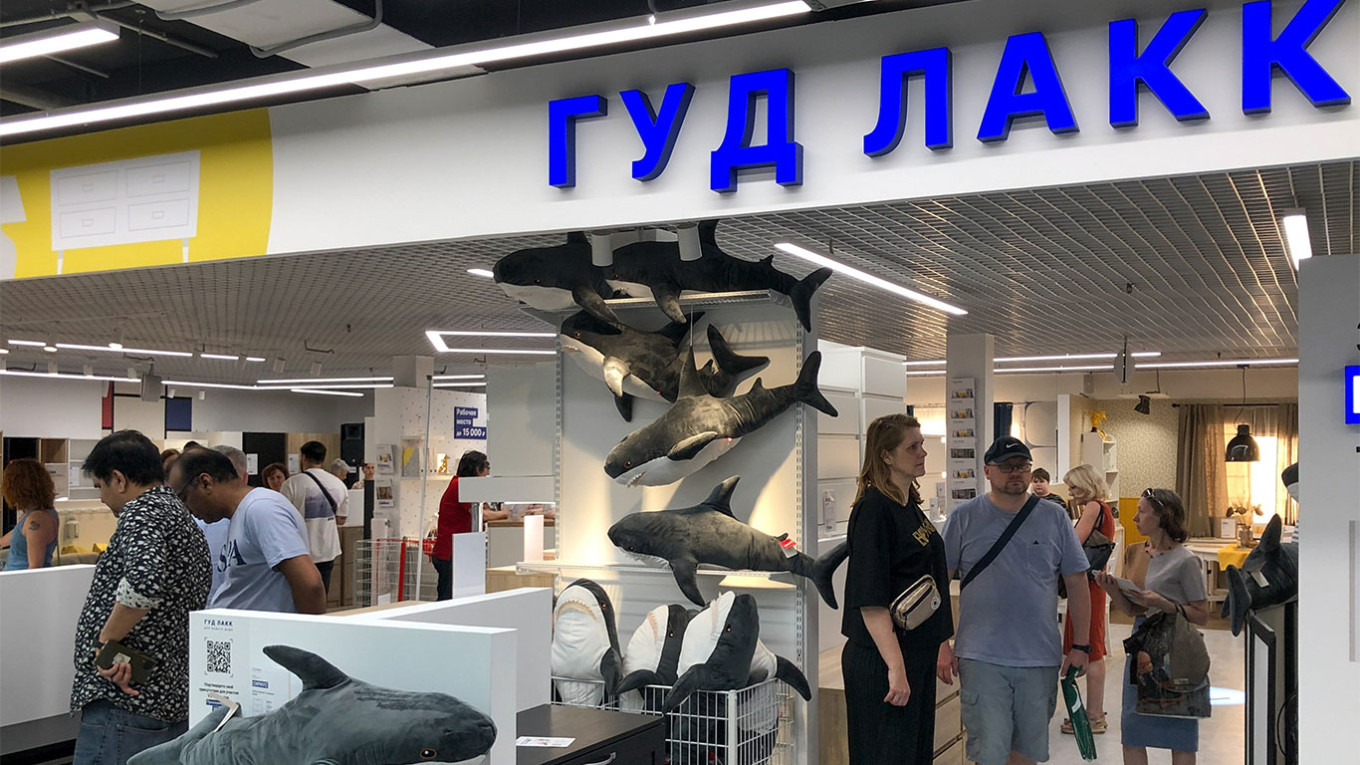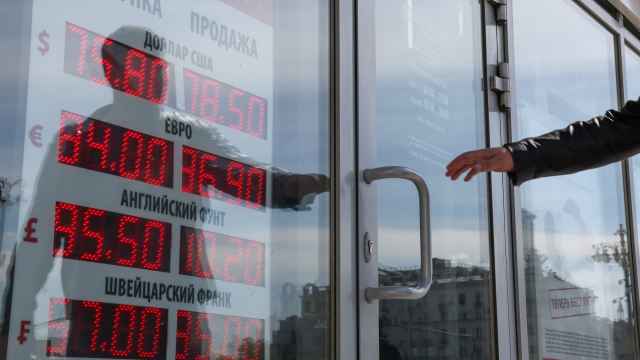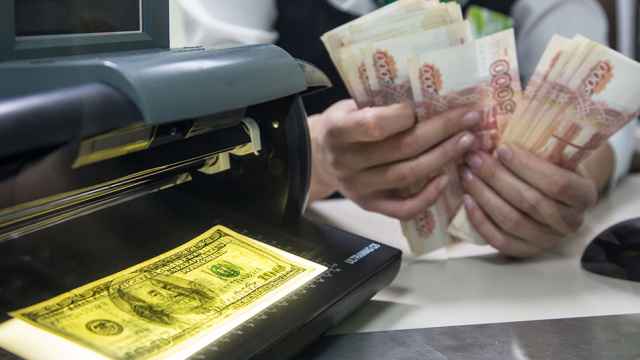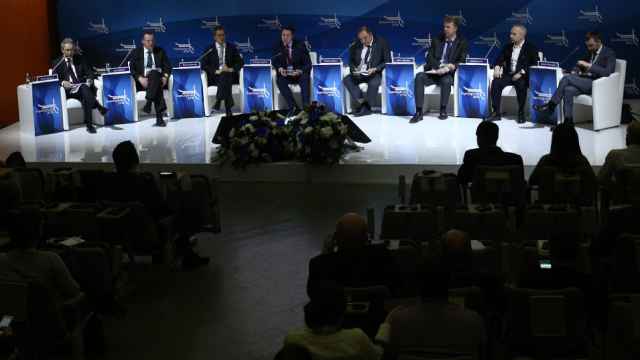In any discussion over the future of Russia’s economy, the issues raised are always the same: Western sanctions, growing war spending, and the redirection of trade flows to Asia. Left unaddressed, however, are two additional trends: increasing nationalization and a new wave of privatization. Seemingly mutually exclusive, these developments could prove entirely compatible — and may well transform Russia’s social structure and further entrench the country’s political system.
A great many assets have changed hands since Russia’s invasion of Ukraine. Many were left behind by Western companies that pulled out of the country, chief among them retailers and food and drink chains (like McDonald’s, IKEA, and Starbucks), automakers (such as Ford and Mercedes), and retail banks (including Home Credit and Société Générale).
Exiting Russia has become more difficult with time. In August 2022, President Vladimir Putin issued a decree banning foreign investors from “unfriendly countries” (as determined by the Russian government) from selling or transferring their stakes in strategic companies operating in Russia’s financial and energy sectors, from which only he may grant exemptions. Later, in December, the government introduced a rule forcing foreign companies leaving Russia to dispose of their assets at a discount of no less than 50% of market value.
In March 2023, those requirements were expanded to include a compensation payment to the state, while in April, Putin authorized the expropriation of foreign-owned assets in response to the seizure and freezing of Russian assets abroad. The first firms to fall victim to the latter measure were the local subsidiaries of Finland’s Fortum and Germany’s Uniper, both energy companies, which may not have been formally nationalized but are unlikely to ever be reclaimed by their former parents.
The holdings of foreign companies aside, state assets have remained attractive. The former Accounts Chamber head Alexei Kudrin, when making the case for large-scale privatization, pointed out that the state sector generated more than half of Russia’s GDP in 2019. In the oil and gas sector, nearly 75% of revenues came from state companies.
Still another source of assets for redistribution have been those Russian entrepreneurs who liquidated their assets — including parts of the internet services giant Yandex, the telecom company Vimpelcom, and online bank Tinkoff — and moved abroad, voluntarily or not.
As a result, there is an unprecedented turnover of heavily discounted assets in Russia today, from those belonging to the state to those relinquished or otherwise lost by foreign companies and Russian businesspeople. Now the authorities must decide what to do with them all.
One of the options is privatization, a strategy close to the heart of state bank VTB CEO Andrei Kostin, whose bank acquired the rival Otkritie group last December in one of the largest deals in Russian banking history — without an auction or much concern for antitrust restrictions.
Kostin’s privatization drive is wide-ranging, targeting everything from Russian Railways to the Transneft oil pipeline company to the Rostec defense conglomerate and even cognac makers. Thanks to its status as Russia’s second-biggest bank, not even record losses in 2022 will prevent VTB from taking part in the carving up of assets at bargain prices.
Kostin is joined in backing privatization by the government’s financial and economic bloc, led by Central Bank Governor Elvira Nabiullina, Finance Minister Anton Siluanov, and Economic Development Minister Maxim Reshetnikov. Their preference, however, is for limited rather than mass privatization.
Kostin’s argument in favor of privatization — that it must be introduced to generate interest among investors and stem the outflow of capital — is telling. According to the central bank, the volume of transfers to foreign banks tripled in 2022, suggesting that most people who wished to get their money out of Russia did so then.
At the same time, nearly 30% of the total amount deposited in Russian banks came from those with more than 10 million rubles in savings. This group of people, representing just 0.1% of depositors (probably about 20,000 people), evidently cannot or do not wish to move their money abroad.
The same can be said of several other tens of thousands of Russians working in government, particularly at security and supervisory agencies. Their wealth can no longer be transferred abroad, and they largely lack the knowledge and experience to invest in Asia, making their funds a dead weight gathering dust in anticipation of better times and a new round of redistribution.
What can the authorities do? The answer is clear: acquire the abandoned assets at the maximum discount, then redistribute them in such a way as befits their industry. Financial firms, natural resources, and other energy companies will be absorbed by state banks and companies in a kind of quasi-nationalization or pseudo-privatization that Russia has perfected over time.
Nonstrategic assets, such as in retail, will be redistributed among the nouveau riche and the upper middle class: generally, the generations aged 35-55 and university-educated, whose wealth has come from either state-adjacent projects such as roadbuilding, or senior positions at state companies and private firms with Western investors. According to Forbes, a significant part of Western assets have already been awarded to the old oligarchs, the former CEOs of Western companies’ Russian subsidiaries, and entrepreneurs from the provinces. Also in the mix are Asian — especially Chinese — companies, which can count on their governments’ support.
Public servants, including representatives of the security state, may also get in on the action, having enriched themselves through petty corruption, though they will be sure to involve themselves strictly through proxies.
All this may combine to shore up Putin’s regime. Russia’s social structure had started to resemble an hourglass as the middle class contracted and emigrated. Now that same middle class may also be able to benefit from the country’s current direction, turning a structure that looked like it might break in half at any minute into a far more stable trapezoid shape.
The regime’s economic foundation will now consist of the state’s expanded asset base in natural resources, energy, and heavy industry. Meanwhile, at the top of the new social hierarchy will be the trusted lieutenants of the president and their heirs, along with select officials holding significant stakes in state-adjacent companies or directorships. The more the state brings under its control, the more such people there will be.
The middle layer of Russia’s social structure will be shaped by the redistribution of assets among those well-off Russians forced to focus on the domestic market by international sanctions. In return for their loyalty, they will receive high-quality assets at a significant discount, which may turn them into a pillar of the regime and a source of patriotic optimism and even radicalism. There could even be a “people’s privatization,” in which the wealthy are awarded minority stakes in state companies.
Much will depend on the avoidance of catastrophe on the Ukrainian front, the continued apathy of the public sector, and the success of Russia’s pivot to Asia. Yet the effect could be to extend the regime’s lifespan — and it may well even enable a transition of power down the road.
This article was originally published by The Carnegie Endowment for International Peace.
A Message from The Moscow Times:
Dear readers,
We are facing unprecedented challenges. Russia's Prosecutor General's Office has designated The Moscow Times as an "undesirable" organization, criminalizing our work and putting our staff at risk of prosecution. This follows our earlier unjust labeling as a "foreign agent."
These actions are direct attempts to silence independent journalism in Russia. The authorities claim our work "discredits the decisions of the Russian leadership." We see things differently: we strive to provide accurate, unbiased reporting on Russia.
We, the journalists of The Moscow Times, refuse to be silenced. But to continue our work, we need your help.
Your support, no matter how small, makes a world of difference. If you can, please support us monthly starting from just $2. It's quick to set up, and every contribution makes a significant impact.
By supporting The Moscow Times, you're defending open, independent journalism in the face of repression. Thank you for standing with us.
Remind me later.








